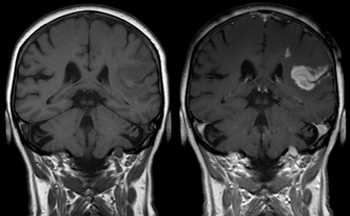Professor Narender Ramnani Steps into Presidency at the British Neuroscience Association
29th April 2025
23rd Aug 2016
 New research published in the journal PLOS ONE describes how mice given the omega-3 fatty acid DHA had less brain damage and better brain function than controls. The effects were not seen with a different omega-3 fatty acid, EPA.
New research published in the journal PLOS ONE describes how mice given the omega-3 fatty acid DHA had less brain damage and better brain function than controls. The effects were not seen with a different omega-3 fatty acid, EPA.
Prior to treatment with the fatty acids the 10-week-old mice had been incurred a hypoxic-ischemic brain injury, the type of injury that occurs during a stroke (see image).
These findings suggest that the omega-3 fatty acid DHA has the ability to protect brain cells agains the damage caused by a stroke-like event, or the interruption of blood flow and oxygen supply during or shortly after birth which can cause brain damage in newborns.
EPA and DHA are bioactive omega-3 fatty acids that are found in oils extracted from cold-water fish and are present in the diet in certain foods and supplements. Other studies have shown that these fish-oil fatty acids protect organs and cells in numerous ways after oxygen deprivation, reducing inflammation and cell death.